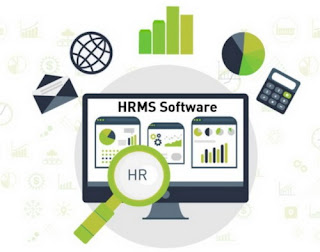5 Ways A HRMS Software Helps MNCs Streamline Their HR Operations
Businesses are growing
their operations internationally in our increasingly interconnected world,
resulting in a workforce that is both diverse and dynamic on a global scale.
Managing staff members from different legal systems, cultures, and languages can
provide major problems that need solving. This is where HRMS
software, or Human Resource
Management System, becomes a vital tool for multinational companies looking to
optimise their HR processes. In this blog, we will delve deep into how HRMS
softwares can be essential for multinational companies. We will also talk about
an award winning HRMS company at the end of this blog. Let’s get started.
The
Global Workforce Landscape
Different languages, cultural
diversity, and intricate compliance issues define a global workforce. Such
diversity might offer special opportunities, but it can also provide serious
difficulties for HR professionals. Working internationally requires negotiating
convoluted legal systems, abiding by diverse labour regulations, and taking
into account disparate cultural norms and expectations. An efficient HRMS is
essential in this kind of setting to guarantee smooth operations and productive
management of the worldwide workforce.
HRMS's
Function in International Workforce Management
In order to effectively
handle the complex issues involved in managing a worldwide workforce, HRMS
software is essential. It acts as the focal point for HR procedures, allowing
businesses to optimise and standardise their HR operations across borders. In
addition to promoting efficiency, this centralization guarantees uniformity and
conformity throughout all foreign locations. The following are some important
areas where HRMS has a big influence:
1. Multinational Payroll Administration
Payroll is one of the
trickiest parts when it comes to overseeing a multinational staff. Different
countries have varying benefit plans, tax laws, and payment systems. By
automating computations, assuring compliance, and offering a uniform view of
payroll data, HRMS and payroll software streamlines multi-country payroll
management. It makes it possible for companies to pay staff members correctly,
wherever they may be. This simplifies the frequently intricate payroll
procedures that entail many currencies, tax codes, and documentation needs.
2. Lawfulness and Related Issues
In a global setting,
adherence to labour rules and regulations is crucial. HRMS software helps maintain
compliance by automating procedures linked to compliance and monitoring legal
requirements across borders. This is particularly important because breaking
the law can result in expensive fines and harm to the organisation's image.
HRMS software assists companies in adhering to various legal environments by
navigating complex labour laws, including those pertaining to employment
contracts, working hours, and leave policies.
3. Support for Language and Communication
The foundation of HR
management is effective communication, but in a multilingual setting, this can
be difficult. Language support and translation tools are frequently included in
HRMS software to enable effective communication between HR departments and
workers worldwide. This guarantees that vital HR data, like performance reviews
and employment policies, is accessible to and understood by employees across
the border. Language boundaries don't stand in the way of efficient HR
communication when there is multilingual support at work.
4. Security of Employee Data and GDPR Adherence
Data security is a problem
that must be addressed by multinational corporations, especially in light of
GDPR and other data protection laws. HRMS software reduces the risks connected
with data breaches and privacy violations by giving employers the tools they
need to protect employee data and guarantee GDPR compliance. Ensuring the
security of sensitive employee data is crucial, and HRMS provides features like
data encryption, access controls, and safe storage to guarantee data protection
across national and international borders.
5. Linking up with the Global HR Ecosystem
In order to effectively
manage a heterogeneous workforce, HRMS software ought to be seamlessly integrated with
other HR tools and systems, forming a global HR ecosystem. This kind of
integration reduces duplication, guarantees data consistency, and boosts
productivity. It makes it possible for companies to utilise the HR tech stack
to its maximum capacity. Global firms that frequently rely on a variety of
tools, from time and attendance systems to performance management software,
need integration with other HR systems more than ever. By acting as the focal
point connecting all of these systems, HRMS may offer a consolidated picture of
HR data and streamline data interchange.
Conclusion
HRMS software becomes a
strategic advantage as companies grow internationally and hire a varied range
of people. It assists companies in navigating the challenges of managing their
global HR department while guaranteeing compliance, fostering cultural
awareness, and facilitating collaboration. Purchasing an HRMS system is not
only a smart decision, but also a requirement for businesses that want to
succeed internationally. It holds the key to releasing the full potential of a
workforce that is networked, multicultural, and diverse throughout the world.
Opportune HR is one such HRMS
software in Mumbai
that has helped MNCs simplify their HR operations. They are an award-winning
HRMS company renowned for their customisation. Every organisation has different
needs when it comes to HR operations and Opportune helps organisations meet
those requirements. From core HR to analytics and AI applications, all the
features in Opportune HR are designed to address real life HR scenarios. Visit
their website to learn more about their services.




Comments
Post a Comment